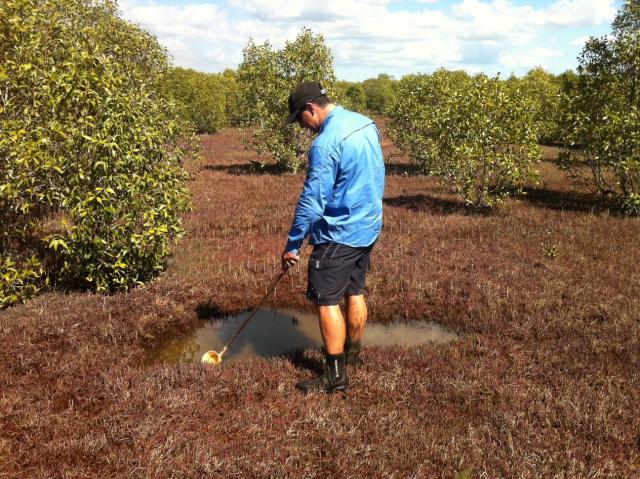If you’ve been doing the mozzie dance, slapping yourself as the little biters attack, you’re not alone.
Recent rainfall, combined with warmer temperatures and increased humidity, have provided the perfect mosquito breeding conditions.
Sunshine Coast Council Environment Portfolio Councillor Peter Cox said while council managed mosquitoes through an extensive surveillance and treatment program across the region, residents could play a vital role in reducing mosquito numbers by minimising breeding areas around their homes.
“There are a range of measures residents can take to minimise their exposure to mosquitoes such as tipping out containers or pot plant bases, and regularly cleaning roof gutters when it’s safe to do so,” Cr Cox said.
“Changing water in pet bowls and bird baths will also help and ensure your rainwater tank is fitted with mosquito proof screens.
“Council regularly monitors mosquito-prone areas and works closely with Queensland Health to monitor mosquito populations across the region.”
Tips to protect from mosquitoes:
· Use a recommended personal mosquito repellent. Always read the label and follow safety directions.
· Wear long-sleeved shirts and trousers. Light colours are best.
· Limit time outside at dusk and dawn.
· Remove water sources around the house. Tip out containers, pot plants or items holding water. Small amounts of water can breed large numbers of mosquitoes!
· Spray screens with residual products. Always read the label and follow safety directions.
· Increase light and air movement around dark and damp areas.
· Outdoor areas around your house can be treated with products containing a residual insecticide for control over longer periods.
· Change water in pet bowls and bird baths frequently. Clean your roof gutters on a regular basis.
· Ensure your rainwater tank is fitted with mosquito proof screens.
· Keep swimming pools clean and chlorinated.
· Keep any ornamental ponds and fountains stocked with fish.
· See a vet for advice on suitable preventative treatments / repellents if your pets are affected.








